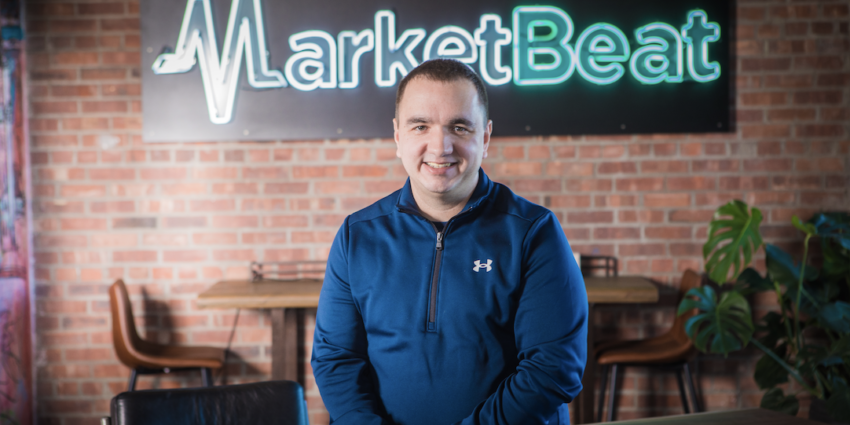
When I was a student at Dakota State University, I paid close attention to the emails that were sent to all students. A lot of the emails were noise from student activities I was not interested in, but every now and then great opportunities were presented that any ambitious student could take advantage of. It was through an all-student email that I learned about an opportunity to write for the campus newspaper. It was through another email that I learned about and applied for the Technology Fellows program, which allowed me to graduate debt free. The most consequential email that I received during my college career was not a job opportunity or another scholarship to apply for. Rather, it was an email about a nascent program called the Center for Techno-Entrepreneurship (CTE) that would help students launch their own technology businesses.

I was about one year into my business when the Center for Techno-Entrepreneurship launched at DSU. I had built out a personal finance website called American Consumer News that was attracting a few thousand visitors each day and making about $1,000 per month from advertising. It was a great side hustle for a student, but it was not really a business yet. I applied to be part of the first CTE cohort and was accepted. CTE introduced me to potential mentors, connected me with professional service providers, provided $5,000 worth of seed capital and provided free office space at the Heartland Technology Center in Madison. It was even featured by the Madison Daily Leader!
It was through the Center for Techno-Entrepreneurship that I incorporated my business as a South Dakota LLC, setup a proper accounting system and was challenged to think about how I could scale my income-producing hobby into a real business that created jobs and generated meaningful revenue. Through the course of my senior year, I devoted more time to American Consumer News and launched additional financial news websites. By the time I graduated, my business was generating about $5,000 per month in income. I was particularly proud when Governor Mike Rounds, who was the commencement speaker at my graduation, mentioned me as an example of a student that created an opportunity for himself through the university system.
From Graduation to Startup Ecosystem Building
After graduation, I took a full-time job doing website development work and continued to build my business on the side. After a few years, I was able to go full-time with my business and hire my first employee. Today that business, now called MarketBeat, employs nine people and generates north of $10 million in annual revenue. When I started my business, the Center for Techno-Entrepreneurship was the only resource that I had available to me. There was no community of student startup founders and I was not aware of the SBA, the Small Business Development Center, the South Dakota Technology Business Center (now Zeal) or other startup business services available in Sioux Falls.
When I started to see some business success of my own, I decided that one of the things that I wanted to do was create resources and community so that the next generation of South Dakota entrepreneurs would have a leg up that I did not have. Over the years, this has meant hosting startup community events, creating resource guides, helping launch angel investment funds and mentoring new entrepreneurs. Now, things are coming full circle.
Announcing the Paulson Cyber Incubator and Entrepreneurial Center at DSU
Today, Dakota State University is announcing the creation of the Paulson Cyber Incubator and Entrepreneurial Center (or the Paulson Center for short). The Paulson Center will give DSU’s next generation of entrepreneurs the resources and advice they need to build great South Dakota businesses, just has DSU had done for me thirteen years ago.
The Paulson Center will help university faculty and students commercialize intellectual property developed at Dakota State. It will serve as a hub to connect university entrepreneurs to regional startup resources, professional service providers and venture capital sources. It will help match entrepreneurs with established business owners that can serve as mentors. The Center will bring in outside speakers and encourage students to think about entrepreneurship as a career option. Finally, it will provide pre-seed capital to selected startup businesses that come out of the university.
The Paulson Center will be housed out of the former Heartland Technology Center just north of DSU’s campus in Madison. DSU is in the process of hiring a full-time director to run the center. The Paulson Center has five years of funding lined up through an appropriation from the South Dakota State Legislature, a $300,000 gift from the person writing this blog post, local grant sources and other university funds.

My hope is that DSU will launch five to ten successful, high-growth technology companies over the next five years. These startups will create high-paying technology jobs in South Dakota that will help keep DSU’s graduates in state and will seed the state’s growing technology sector with talent and other resources.
You can read DSU’s press release about the Paulson Center here.
